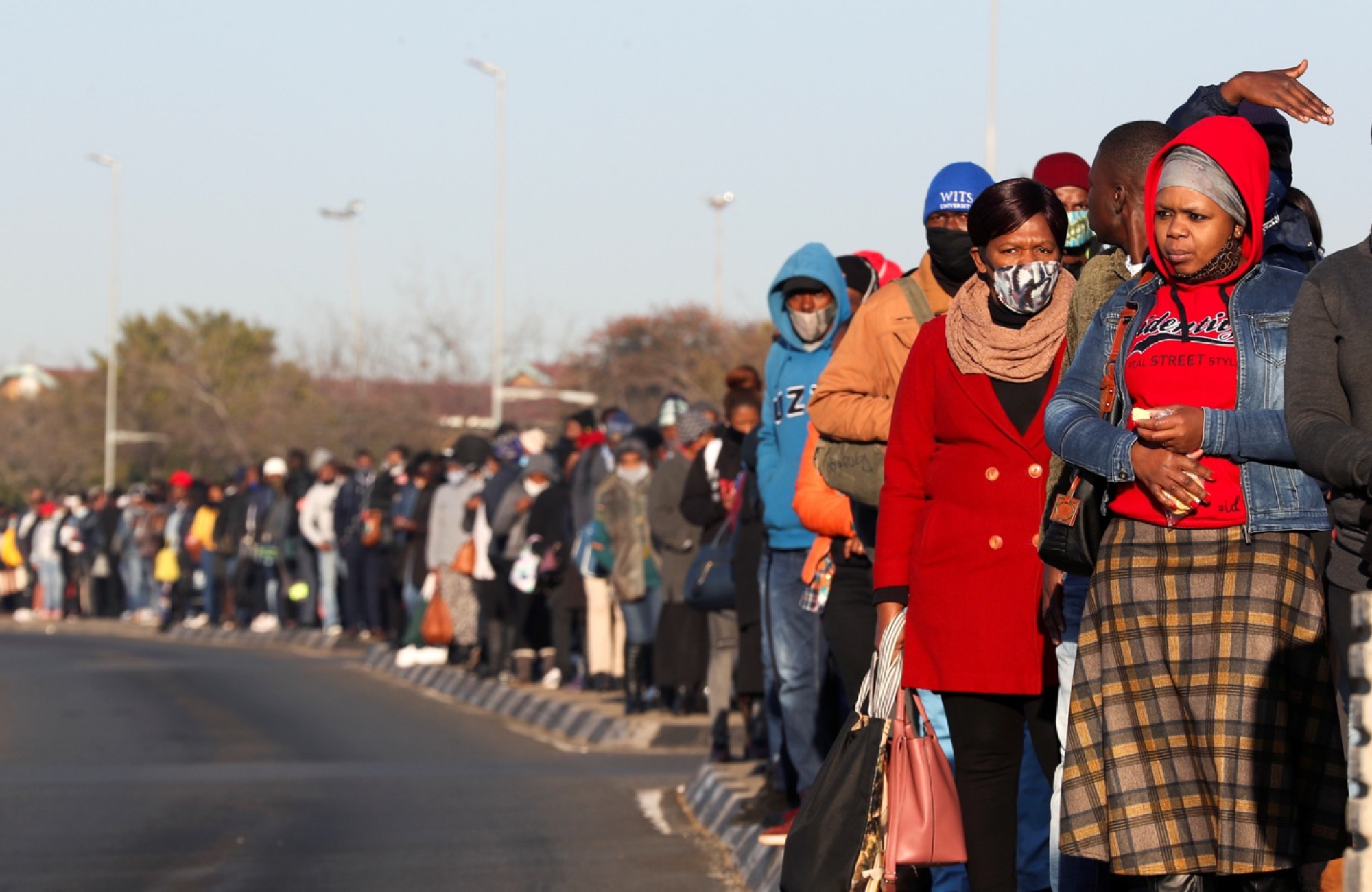Our work has informed the biggest expansion in the social safety net in South Africa since the early 2000s. Based on our advice, the South African government rolled out a new monthly grant (Social Relief of Distress Grant) which has been reaching up to 10.5 million unemployed people.
Between March 2020 and June 2022, the government spent an additional ZAR 97.5 billion (£4.87 billion) on support for poor and unemployed South Africans based on recommendations made in our policy briefing notes. In October 2022, our briefing note on grant design influenced the National Treasury's decision to allocate an additional ZAR 36 billion to extend the Social Relief of Distress grant for unemployed working-age individuals until March 2024. Our latest briefing note on grant design (October 2023) has once again encouraged the National Treasury to extend the grant to March 2025, with an allocation of ZAR 34 billion to finance this extension.
To date our team at Oxford have produced five policy briefing notes, often in collaboration with colleagues at Duke University or the Southern Africa Labour and Development Research Unit at the University of Cape Town. These briefing notes detail the reviewed evidence or conducted simulations on questions identified by the PMO and have been used in key decisions by the presidency and circulated widely in government, including to the President, cabinet and decision making structures responsible for social protection.
Evidence on how best to provide emergency relief to people who are unemployed and in poverty.
Alongside the Southern Africa Labour and Development Research Unit at the University of Cape Town and the Institute for Economic Justice, as well as the Pay The Grants coalition of civil society organisations and trade unions, we lobbied the government to change the mode of delivery for emergency relief from food parcels to cash.
Permanent grant options for the unemployed that could replace the emergency poverty relief measures adopted during the pandemic.
Based on our recommendations, government set up and then extended a new emergency cash grant for the unemployed from May 2020, titled the Social Relief of Distress Grant (SRD). This was initially designed as emergency relief during lockdown, but, based in part on our recommendations, was extended to March 2023 while consultations occur on a longer-term system to support the unemployed.
Evidence on how to target grant funds to reduce unfair exclusions and to support a package of job search support services accessible when jobseekers collect their unemployment assistance.
Based on the recommendations in our report, on 26 October 2022, National Treasury announced that the SRD would be extended until March 2024, with an allocation for up to R52 billion for the year.
Recommend potential reforms to the national youth wage subsidy, called the Employment Tax Incentive (ETI).
Based on the policy note produced by the team, the government committed to redesign the ETI and increase the amount spent on the policy by ZAR 2.35 billion (£120 million) per year.
Recommendations on how to improve the design of the special COVID-19 Social Relief of Distress (SRD) Grant to enhance its impact on poverty reduction.
In this working paper, we model the effects of different targeting rules, income eligibility thresholds, and grant amounts for the SRD grant on the number of beneficiaries, coverage of the poor, incidence of poverty, and cost of the grant. On the basis of these results, we recommend that the budget allocation to the grant be increased. We propose four immediate methods to increase the potential impacts of the grant while a) keeping the cost within a fiscally feasible range and b) ensuring that the number of beneficiaries can be varied if needed depending on the fiscal situation.
Our work with the South African presidency was recently recognised with the Vice-Chancellor’s Innovation & Engagement Awards. This prestigious award is granted to celebrate research undertaken at the University of Oxford that makes a positive difference to the economy and society.
Read more about this award from an article by the Blavatnik School of Government.
We recently received an Economic and Social Research Council Impact Acceleration Account award for impact work related to the scaling up of an intervention to help workseekers signal their skills to employers and find jobs. This work is covered in our reports, above.
Kate Orkin received an Oxford Policy Engagement Network Fellowship to fund engagement with government.
Kate Orkin has received the ESRC Impact Award for Outstanding Public Policy Impact for her role advising the South African government during COVID-19 and beyond. She influenced £4.87 billion in spending that helped 28.5 million people and saved 5.5 million from extreme poverty.
Listen to Kate Orkin discussing the work behind the award on the CSAE podcast or watch this discussion on the CSAE YouTube channel.
Read more about this work from an article by the University of Oxford.
Social media coverage on the award:
Newspaper coverage in:
Summaries of research frontier studies but aimed at policy audiences:
Podcasts, TV and Radio Interviews:
Newspaper Op-eds: The Mail and Guardian
Article in Psychology, Health & Medicine
Article in The Conversation
